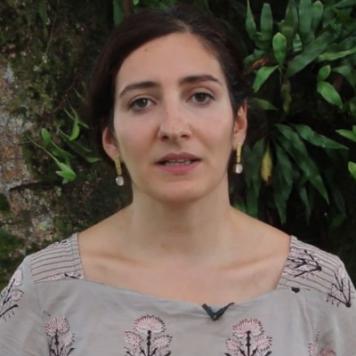(disponible en anglais uniquement)
Filling the Gender Gap in the Pacific’s Offshore Fisheries Sector
In February, this year, I was invited to participate with other relevant fisheries and gender stakeholders in two consultative workshops organised by World Wildlife Fund for Nature (WWF), the global conservation organization.
This Gender Mainstreaming in the Offshore Fisheries consultations, funded by the New Zealand government, convened stakeholders particularly representatives from respective ministries, industry, civil society organisations and academia to dissect the relevance of gender mainstreaming in Fiji’s fisheries sector.
As a specialist in Gender and Human Rights for the Pacific-European Union Marine Partnership (PEUMP) Programme, I had the privilege being a speaker during one of the panel discussions focussing on human trafficking, its linkages with forced labour, Illegal, Unreported and Unregulated (IUU) fishing, sex trade and health impacts.
My colleagues from SPC’s Human Rights and Social Development (HRSD) division also participated in the consultations and provided inputs and feedback towards the desk-top review. SPC’s involvement in this review process strengthened the knowledge of the fisheries stakeholders – complimenting the work being carried by WWF.
Through this consultation we wanted to explore and address key obstacles for women to access decent employment opportunities in the Pacific offshore sector with a particular focus on tuna longline fishery. We also wanted to better understand the human rights dimension of working on fishing vessels. Some of the targeted employment opportunities discussed were in tuna processing facilities, access to education and access to diverse career pathways on- and offshore and standards of working conditions on vessels.
While analysing the human rights component of the consultation, a broader review investigated gaps, concerns and issues that negatively impact human rights of workers who are employed in the offshore sector. These include lack of decent working conditions, non-transparent contract agreements and various cases of human rights abuses that are related to the work at sea.
We also looked at the impacts of the COVID-19 pandemic on the offshore fishing industry through a gender and human rights lens. This resulted in a thorough gender analysis that improved the understanding and knowledge on how gender inclusion and gender mainstreaming in Fiji’s Tuna industry can be effectively addressed.
This consultation was divided into two workshops. In the first workshop we worked with relevant stakeholders reviewing the human rights and gender gaps and challenges that exist in the offshore fisheries sector, while in the second workshop we validated key findings and recommendations from the draft review.
Similar to the Pacific handbook for gender equity and social inclusion in coastal fisheries and aquaculture, that was launched on International Women’s Day, this consultation and multi-stakeholder review provided us with the basis for updated information that will now be used by SPC, particularly the PEUMP Programme, to develop a similar handbook on gender equity and social inclusion (GESI) and human rights for our offshore fisheries stakeholders.
This new offshore handbook will be a key resource for PEUMP’s offshore implementing partners, such as Pacific Islands Forum Fisheries Agency (FFA), WWF, private sector actors and Pacific governments. It will allow stakeholder to be more aware and better equipped to improve the overall human rights situation of crew, observers and offshore fisheries personnel as well as workers in fish processing plants in the Pacific.
In addition, the offshore handbook will be used for training, advocacy and guiding key players to enable them to use stronger GESI and human rights-based approaches by pointing out key issues, gaps and solution-oriented guidance to improve the overall human rights dimension.
I am confident the compilation and use of this handbook will help fill in the gaps identified in the consultations and will provide ideas for further actions to remove obstacles for women and men searching for decent employment opportunities in the fisheries sector.
Useful links:

